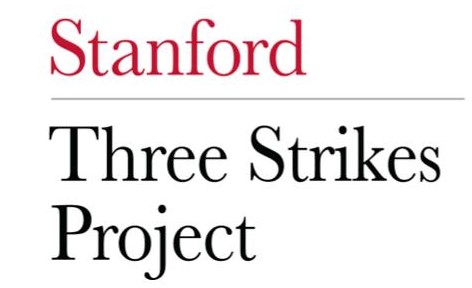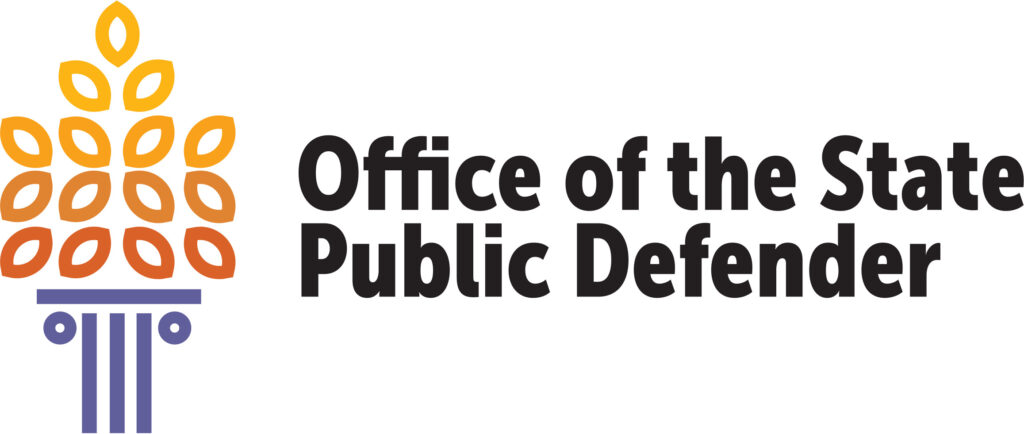AI Assistant
Our data query assistant helps attorneys, academic researchers, policymakers, and the general public, easily study prison sentences being served in the California Department of Corrections and Rehabilitation (CDCR). Users can generate cohorts of individuals that meet the conditions they are interested in with a few natural language prompts. These criteria could be related to age, gender, controlling offenses, prior convictions, sentence length, time served, sentencing county, etc.
We actively work to ensure that our models and tools do not exacerbate existing biases in our society. Our AI assistant is currently in development and will be available to a select group of users for beta testing in March 2025. If you are interested in using our tool, and offering feedback, we welcome you to join our testing user group. Click here to apply.
Encouraging "Second-Look" Case Reviews
In January 2025, the Office of the State Public Defender (OSPD), in partnership with Redo.io, sent detailed letters to county public defenders’ offices across California with possible candidates for resentencing. These letters included the names of incarcerated individuals in California Department of Corrections and Rehabilitation (CDCR) custody who are serving time for non-violent, non-serious, and non-sexual offenses. The individuals were identified using our open database of over 95,000 prison sentences and, based on our analysis, may be eligible for a second-look case review.
In 2018, California passed the first Prosecutor Initiated Resentencing law in the U.S., supported by an $18 million, three-year pilot program in nine geographically and demographically diverse counties. This program provides resources for prosecutors, public defenders, and community groups to pursue resentencing. Additional funding was allocated to the RAND Corporation, an independent research group, to monitors and evaluates the program’s effectiveness.
However, since most resentencing channels are discretionary measures by legislative design, their application is inconsistent across the state. While some counties have embraced resentencing, others have used their discretion sparingly, and some have not used it at all (Wright et al., 2024).
Using our open database of over 95,000 prison sentences, which encompasses the entire CDCR population, we identified harshly sentenced individuals across the state, regardless of whether they were prosecuted by counties that actively pursue post-conviction relief.
Our eligibility lists include individuals sentenced to more than 20 years and who have served at least half of their sentence. We broadly exclude those convicted of homicide, sex offenses, and other violent felonies.
However, there are limitations to the data we provide. Since Redo.io’s prison sentence database is constructed using the California Public Records Act (CPRA), it is possible that some offenses may not be disclosed by CDCR due to privacy restrictions in the law. As a result, some individuals on our “eligible” list may actually be ineligible because they committed a disqualifying offense not disclosed to us under the CPRA.
References:
Wright, Ronald F., & Levine, Kay L. (2024, June 15). Legislatures and Localized Resentencing. Wake Forest University School of Law Legal Studies Research Paper Series, Journal of Criminal Law and Criminology (forthcoming). Available at SSRN: https://ssrn.com/abstract=4930072
Dukmasova, M. (2024, March 15). Three strikes for Cook County prosecutors. Injustice Watch. https://www.injusticewatch.org/criminal-courts/prosecutors/2022/prosecutor-resentencing-failed-cook-county
Open Data Initiative
Data on the population currently incarcerated in any of the state prisons under the jurisdiction of the California Department of Corrections and Rehabilitation (CDCR) as of December 2023. Information was acquired via the California Public Records Act (CPRA). CDCR applied several privacy (health, age, etc.) related exclusionary criteria to release these records to Redo.io. To enhance privacy and security, we applied an MD5 hash algorithm to further mask the original CDCR identification numbers.
Our data and analyses are independent of the Three Strikes Project at Stanford Law, Office of the State Public Defender, and any other organizations with whom we partner or collaborate. This is an open data initiative not supported by or affiliated with any of the aforementioned parties.
Citation
If you make use of our dataset(s), please cite our work as follows:
“Redo.io. cdcr-offenses-data (Version 1.0.0) [Dataset]. https://github.com/redoio/offenses_data“
License
This cdcr-offenses-data resource is made available under the Open Database License: http://opendatacommons.org/licenses/odbl/1.0/ by Redo.io. Any rights in individual contents of the database are licensed under the Database Contents License: http://opendatacommons.org/licenses/dbcl/1.0/
Resentencing Eligibility Determination
A data science tool for the Three Strikes Project at the Stanford University School of Law that proactively and automatically identifies candidates in California’s prison system who are suitable for “second-look” case reviews via Prosecutor Initiated Resentencing. Our tool aims to eliminate barriers to sentence reform, and make case reviews easier, faster and fair.
The Three Strikes Project is legal clinical seminar where law students represent individuals serving life sentences for non-violent offenses under California’s Three Strikes Law. Lawyers assist district attorney’s offices throughout the state who are seeking opportunities to safely and effectively reduce California’s prison population through Prosecutor Initiated Resentencing (PIR). But, given that there are over 100,000 people in California’s prisons, lawyers need efficient and accurate ways to identify those who are eligible for PIR instead of manually reviewing piles of paperwork. Redo.io’s open-source eligibility tool helps lawyers filter their caseload and apply their expertise efficiently. We are currently under a contract with Stanford Law to develop this application.
Our tool
Summary
A rules-based and deterministic model that generates cohorts of individuals eligible for PIR based on criteria established by district attorney’s offices.
What it is:
- A deterministic model with a rules-based framework designed by legal experts
- Easily interpretable and explainable for non-technical users and audience
- Responsive to user requests, i.e. an attorney can request changes to the eligibility criteria and see updated results
What it is not:
- A black box predictive model
- A decision-maker that determines the cases that are ultimately resentenced by the courts
Execution
- Ingest the demographics, current offenses and prior offenses of individuals in California Department of Corrections and Rehabilitation (CDCR) custody
- Run the eligibility model (with selection criteria and scenarios designed by legal experts)
- Return a cohort of individuals eligible for PIR
- Provide attorneys easy-to-understand personal profiles of each candidate
- Re-run the eligibility model when new data on the prison population is released
Citation
If you make use of our dataset(s) or code, please cite our work as follows:
APA style:
“Redo.io. resentencing-data-initiative (Version 1.0.0) [Computer software]. https://github.com/redoio/resentencing_data_initiative/“
BibTex:
@software{Redo_io_resentencing-data-initiative, author = {{Redo.io}}, title = {{resentencing-data-initiative}}, url = {https://github.com/redoio/resentencing_data_initiative/}, version = {1.0.0}}
License
All content in this project is licensed under GNU AGPLv3
You must give appropriate credit to our work. You may not use our work for commercial purposes, which means anything primarily intended for or directed toward commercial advantage or monetary compensation.















